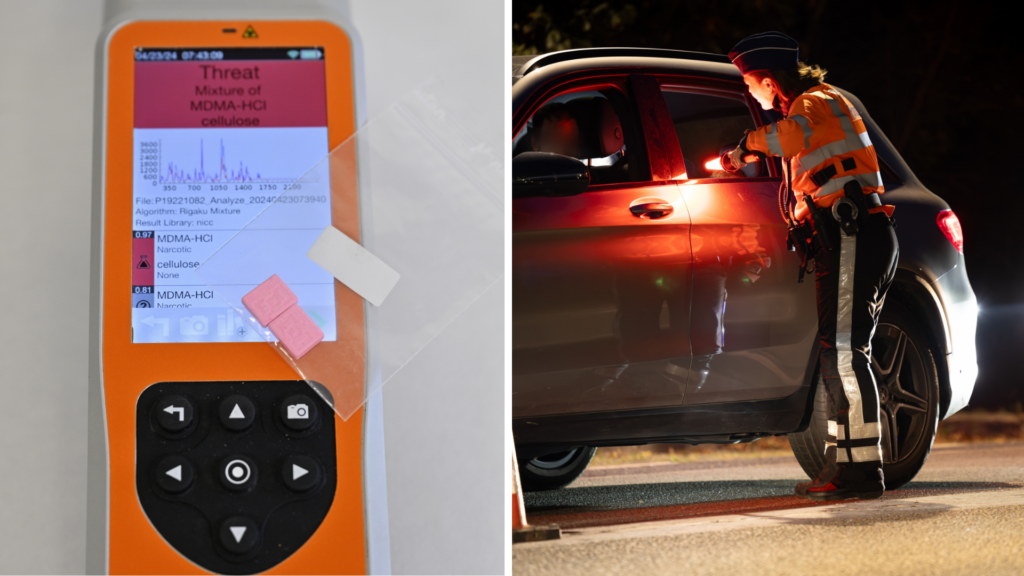Police will soon be better equipped to tackle the pressing issue of people driving under the influence of drugs. The rising trend is particularly concerning as drivers under the influence are 30 times more likely to be involved in an accident.
Belgium has been experiencing a worrying trend in road safety for several years now. The number of people caught driving under the influence of one or more drugs has increased significantly, from around 2,300 in 2014 to around 12,600 last year.
"Every year, more than half a million drug tests are carried out in our country," the Mobility Ministry noted. "Every day, an average of 36 drivers are caught driving under the influence of drugs, risking a fine of more than €1,000 and the right to drive."
Detecting drugs
Police have ramped up checks to curb the number of offences. However, the system is less efficient and more costly than for alcohol checks. To tackle drink-driving, police use so-called "sniffers", devices that analyse the air in a car pulled over by police. If the machine sounds the alarm, the driver is subjected to an alcohol breath test, saving police from making every person do the test.
Due to the high cost of tests for drug checks, police use a standardised checklist of several indicators to assess the driver's condition, including behaviour patterns such as trembling limbs, blurred eyes, or a "euphoric state of mind". A saliva test is only conducted in case of suspicion (if three of the indicators are detected), or if drugs were found or smelled, followed by a saliva analysis if the test is positive.
However, officers will soon be able to use a similar device to more efficiently catch perpetrators. The devices will quickly detect traces of drugs on the drivers' hands or parts of the car, such as the steering wheel. Similarly to the alcohol checks, if the device detects a substance, the person's saliva must be tested. A Royal Decree was recently published to this end, allowing police to deploy these "drug sniffers," which have already been deployed at airports and in prisons.
Related News
- Laughing gas continues to cause public disorder in Brussels despite ban
- 'Speed remains biggest killer': Record number of traffic fines handed out by police
The new measures also enable police to subject a driver to a test if just one indicator from the checklist is detected. For example, a driver in possession of drugs or someone who admits to having used drugs in the past 12 hours is immediately subjected to a saliva test. People who do not cooperate will also have to undergo a test.
Additionally, motorists showing signs of recent drug use can be prosecuted even if the saliva test could not detect the substance. "This provision came in response to the growing variety of products in circulation," the ministry noted. "These include ketamine and synthetic drugs that cannot be detected by saliva tests." The new measures will come into force on 1 October.

